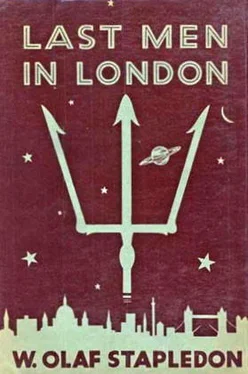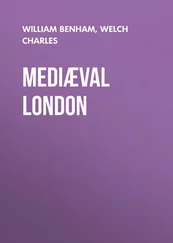Under my influence he also developed a captivating power of social intercourse, which, however, would only come into action in special circumstances. In the ordinary trivial social occasions he remained as a rule clumsy, diffident and tiresome; but in any situation which was relevant to his task, he seemed to come alive, to be a different person, and one that he thoroughly delighted to be. It was not merely that he discovered a gift of conversation. Sometimes he would say almost nothing. But what he did say would have a startling effect on his hearer, drawing him out, compelling him to get a clear view of his own work and aims, forcing him to unburden himself in a confession, such that at the close of it he would perhaps declare, ‘Yes, that is really how I face the world, though till today I hardly thought of it that way.’ Sometimes, however, Paul himself would be almost voluble, commenting with a strangely modest assurance on the other’s function; Often he would find himself assuming for the occasion an appropriate personality, a mask peculiarly suited to appear intelligent and sympathetic to this particular man or woman. Paul was sometimes shocked at the insincerity of this histrionic behaviour; though he pursued it, for the sake of its extraordinary effectiveness. And indeed it was not really insincere, for it was but the natural result of his new and intense imaginative insight into other minds. Sometimes when he was in the presence of two very different individuals whom he had previously encountered apart, he would be hard put to it to assume for each the right mask without rousing the other’s indignation. Thus, to give a rather crude example of this kind of predicament, having on Monday won the confidence of a member of the Communist Party, and on Tuesday the benevolence of a British Patriot, he happened on Wednesday to come upon them both together in violent altercation. Both at first greeted him as an ally, but before he fled he had been reviled by each in turn.
One curious limitation of Paul’s talent he found very distressing. Brilliant as he was at evoking in others a clearer consciousness of their own deeper thoughts and desires, he was incapable of impressing them with his own ideas. Strong in his own recent spiritual experiences, and in his increasing grasp of the contemporary world, he yet failed completely to express himself on these subjects. This was but natural, for he was no genius, still less a prophet; and, save in the office in which I needed him and inspired him, he remained inarticulate. This incapacity disturbed him increasingly as the months and years passed. For increasingly he became convinced that the modern world was heading toward a huge disaster, and that nothing could save it but the awakening of the mass of men into a new mood and greater insight. More and more clearly he saw in his own meditations just what this awakening must be. Yet he could never make it clear to others, for as soon as he tried to express himself, he fell stammering or mute. The trouble lay partly in his incompetence, but partly also in the fact that through my help he had seen both sides of a truth which to his fellows was almost never revealed thus in the solid. Paul’s interlocutor, therefore, was sure to be blind either to one or to the other aspect of Paul’s central conviction; either to his sense of obligation in the heroic and cosmically urgent enterprise of man upon his planet, or to his seemingly inconsistent perception of the finished, the inhuman, beauty of the cosmos.
Most painfully when he was with members of the ‘intelligentsia’ did his mental paralysis seize him. He made contact with many writers and artists. Each of these brilliant beings he treated at first with doglike respect, believing that at last he had come into the presence of one who had broken into new truth. But somehow he never went very far with any of them. For a while he delighted them, because he stimulated them to apprehend their own vision with a new clarity. But since their visions were not as a rule very profound, they and he soon saw all there was to see in them. At this point Paul’s talent invariably disappeared, and henceforth they thought him dull, bourgeois, not worth knowing. He could no longer hold their attention. He had not the necessary flow of personal tittle-tattle to carry him through when deeper interests flagged. On the other hand, if ever he dared to tell them his own views, he merely made a fool of himself, and was treated either with kindly ridicule or with inattention. Thus, though he came to know his way about the intellectual life of London, he was never taken into any circle or school. Most circles had at one time or other tolerated him on their fringes; yet he remained unknown, for no one ever bothered to mention him to anyone else. Thus it happened that he was always apart, always able to look on without pledging his faith to any creed, his intellect to any theory. Every creed, every theory, he secretly tested and sooner or later rejected in the light of his own recent illumination. In this manner Paul served my purpose admirably. As a tissue-section, to be studied under the microscope, may be stained to bring out details of structure that would otherwise have remained invisible, so Paul, whom I had treated with a tincture of Neptunian vision, revealed in exquisite detail the primitive organs of his mind, some of which took the stain and others not. Obviously it is impossible to reveal the whole issue of the experiment to readers of this book, since they themselves suffer from Paul’s limitations.
Throughout these crowded years Paul still carried on his daily work at the school, though inevitably as his attention became more and more occupied, his teaching suffered. All his free time, all his holidays, he now spent on his task of exploration. It was a strange life, so rich in human intercourse, and yet so lonely; for he dared not tell anyone of the real purpose of his activities, of their Neptunian aspect, lest he should bethought insane. To his friends he appeared to have been bitten by some queer bug of curiosity, which, they said, had filled him with a quite aimless mania for inquiry, and was ruining his work.
To aid his project he undertook a number of enterprises, none of which he did well, since at heart he regarded them only as means of the pursuit of his secret purpose. He worked for a political party, lectured to classes organized by the Workers’ Educational Association, collaborated in a social survey of a poor district. Also he haunted certain public-houses, attended revivalist meetings, became intimate with burglars, swindlers, and one or two uncaught murderers, who, he found, were extremely thankful for the opportunity of unburdening themselves under the spell of his mysteriously aloof sympathy and understanding. He made contact with many prostitutes and keepers of brothels. He respectfully explored the minds of homosexuals, and others whose hungers did not conform to the lusts of their fellows. He found his way into many chambers of suffering, and was present at many death-beds. He was welcomed in mining villages, and in slum tenements. He discussed revolution in the homes of artisans. Equally he was received in the houses of bank managers, of ship-owners, of great industrial employers. He conferred with bishops, and also with the dignitaries of science, but no less eagerly with vagabonds; over stolen delicacies, seated behind hedges. Part of one summer he spent as a dock labourer, and part of another as a harvest hand in the West of England. He travelled steerage on an emigrant ship, and worked his passage on a tramp steamer along the Baltic coasts. He made a brief but crowded pilgrimage to Russia, and came home a Communist, with a difference. He tramped and bicycled in Western Europe; and in England he made contact with many visitors from the East. Yet also he found time to keep abreast of contemporary literature, to haunt studios, to discuss epistemology and ethics with bright young Cambridge philosophers.
Читать дальше












